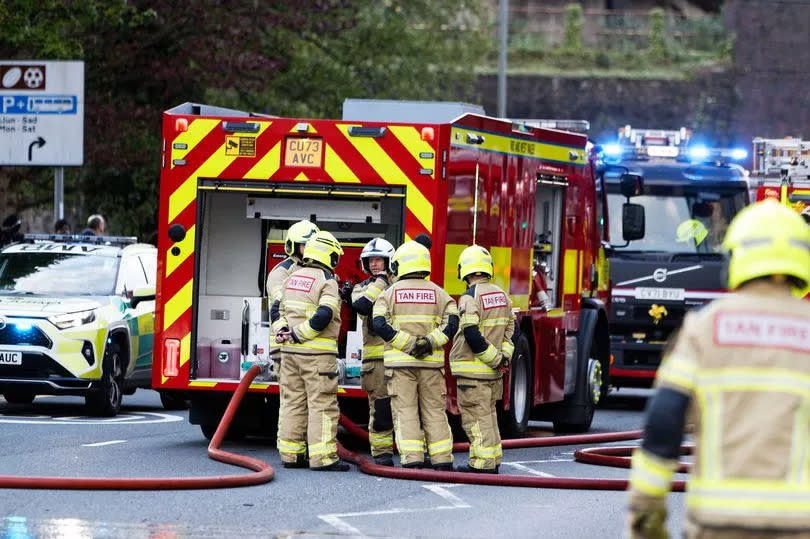Only one in five incidents attended by fire service are actual fires

Firefighters from Mid and West Wales attended more than 13,000 incidents in 2023-24, but fewer than 20% of them were fires. By far the largest majority of call-outs were for false alarms, which the fire service has said it will no longer respond to in certain circumstances as of this month.
Overall, Mid and West Wales Fire and Rescue Service went out to 13,071 incidents last financial year. These included:
- All false alarms 5,908
- Accidental and deliberate fires 2,582
- All medical response incidents 1,010
- Road traffic accidents 782
- Flooding 393
The 2,582 fires represented 19.8% of the total incidents attended, and sadly there were seven fire deaths. Overall, the fire and rescue service attended 253 more incidents in 2023-24 than the previous year, including more flooding and road accidents. But there were 441 fewer fires. For the latest Welsh news delivered to your inbox sign up to our newsletter
Ten years ago the service attended 3,916 fires but the number has generally fallen year on year to reach the current figure of 2,582. Just over half of them were classed as accidental; the remainder were deliberate. Flooding incidents fluctuate from year to year, from 185 in 2014-15 to 470 in 2020-21.
The fire service covers a population of around 910,000 people in Swansea, Neath Port Talbot, Carmarthenshire, Pembrokeshire, Ceredigion and Powys. It has 58 fire stations and a mix of whole-time and on-call - or part-time - crew. It is funded by council taxpayers in the six constituent councils via a levy, which has gone up by more than inflation this year and last year.
READ MORE: 'Arrogant and aggressive' driver injured two at fatal gas explosion roadblock
READ MORE: Pictures revealed of major new building planned for Swansea city centre
Earlier in 2024 fire chiefs said staff would no longer attend automatic fire alarm call-outs from commercial and public sector buildings from July onwards, unless a report or reports accompanied them saying there was a fire.
They said the vast majority of such alarms proved to be false and that staff would be freed up to do other work instead. Crews will, however, continue to attend automatic fire alarms from homes, nursing and care homes, premises subject to fire safety prohibition or enforcement notices, and also boarding schools.
Speaking in April, Peter Greenslade, Mid and West Wales Fire Service area manager and head of corporate risk, said: "As a service we attend in excess of 2,000 alarm actuations in commercial buildings every year with over 99% of these calls being false alarms. This disrupts the community safety work that the service can deliver, operational training for crews, and introduces environmental and road risks that are unnecessary. Additionally the businesses themselves are impacted due to the disruption caused."

 Yahoo News
Yahoo News 
